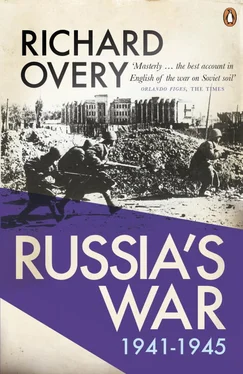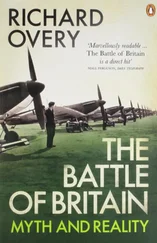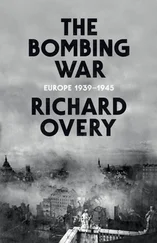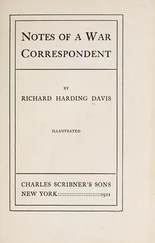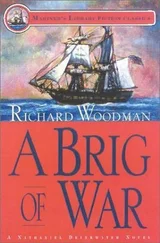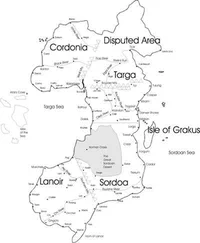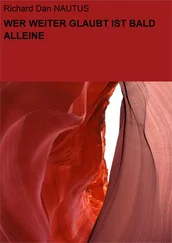Richard Overy - Russia's War
Здесь есть возможность читать онлайн «Richard Overy - Russia's War» — ознакомительный отрывок электронной книги совершенно бесплатно, а после прочтения отрывка купить полную версию. В некоторых случаях можно слушать аудио, скачать через торрент в формате fb2 и присутствует краткое содержание. Город: London, Год выпуска: 1999, ISBN: 1999, Издательство: Penguin Books Ltd, Жанр: military_history, на английском языке. Описание произведения, (предисловие) а так же отзывы посетителей доступны на портале библиотеки ЛибКат.
- Название:Russia's War
- Автор:
- Издательство:Penguin Books Ltd
- Жанр:
- Год:1999
- Город:London
- ISBN:978-0-14-192512-7
- Рейтинг книги:4 / 5. Голосов: 1
-
Избранное:Добавить в избранное
- Отзывы:
-
Ваша оценка:
- 80
- 1
- 2
- 3
- 4
- 5
Russia's War: краткое содержание, описание и аннотация
Предлагаем к чтению аннотацию, описание, краткое содержание или предисловие (зависит от того, что написал сам автор книги «Russia's War»). Если вы не нашли необходимую информацию о книге — напишите в комментариях, мы постараемся отыскать её.
[Contain tables. Best viewed with CoolReader.]
Russia's War — читать онлайн ознакомительный отрывок
Ниже представлен текст книги, разбитый по страницам. Система сохранения места последней прочитанной страницы, позволяет с удобством читать онлайн бесплатно книгу «Russia's War», без необходимости каждый раз заново искать на чём Вы остановились. Поставьте закладку, и сможете в любой момент перейти на страницу, на которой закончили чтение.
Интервал:
Закладка:
The ‘Second Revolution’ has always been identified with the name of Josef Stalin, but it was the consequence not just of Stalin, who for much of the 1920s had been uncertain about how to approach issues of economic expansion and social reconstruction, but of pressure from thousands in the Party who wanted more aggressive modernization. They were intolerant of the backwardness of the peasant masses; they disliked their reliance on older experts who had served the Tsarist regime. Stalin came to identify with the radical element in the Party because he saw in the strategy of forced economic change the only way of strengthening the Soviet state, and with it his own position in the Party hierarchy, which had not yet reached the scale of full-fledged dictatorship. By the end of the first Five-Year Plan, launched in October 1927, that position had changed. He successfully isolated and eclipsed potential rivals in the Party. By the late 1920s Party organs began to address him by the simple term vozhd , or leader.
Stalin’s rise to supreme power in the Soviet Union was slow and unobtrusive. Trotsky dismissed him as a political simpleton; Lenin condemned him in his final testament, written in December 1922, as a man too rude and impatient to be trusted with power. To outward appearances he was obliging, even-handed and modest, a dull official. His secretary recalled that Stalin would often sit for hours at meetings, at the side of the room, puffing on his pipe, asking the occasional question, proffering few opinions. His ‘gift for silence’ made him unique ‘in a country where everybody talked too much’. 23The contrast between the image of placid ordinariness and the historical picture of Stalin as the enslaver and butcher of his people has no easy explanation. It may never be fully explained, for Stalin left no secret diary and seldom revealed his inner thoughts. The official letters and speeches cannot be taken at face value, though they should not be discarded out of hand. The inner motives, the demons that drove Stalin on, are still the stuff of speculation. More than any other modern historical giant, Stalin remains an enigma. The story of his life is composed of effects as much as of causes. Why he chose to play the dictator’s part is open to wide and conflicting interpretation.
The details of his life are well known. Stalin was born in 1879 in the small Georgian town of Gori. He had a squalid and brutalized upbringing. Regular beatings by his father, a failed and drunken cobbler, produced a personality that in the view of a boyhood friend was ‘grim and heartless’. 24He caught smallpox when he was six, which left him with the tell-tale marks on his sallow complexion. One arm was slightly withered from an infected ulcer. He escaped from penniless obscurity thanks to the exceptional memory that turned him into a star pupil at the local school. He was sent to a seminary school in Tiflis, where he made contact with the local social democrats. He was immediately attracted to Marxism in its Russian guise, with its emphasis on violent confrontation with the Tsarist state and an uncompromising terrorism. He carried with him all his life a hatred of privilege. He became a revolutionary activist, robbing banks to fund his politics. He was in and out of jail, fortunate to avoid execution. He emerged in 1917, at thirty-seven a revolutionary of wide experience, an agitator and terrorist by profession.
In 1917 Stalin was catapulted onto the national stage. He became one of the inner circle of Bolshevik leaders. In October he was rewarded by Lenin with the job of Commissar for the Russian Nationalities. As a Georgian, Stalin was thought to understand the problems of the smaller non-Russian peoples more than the westernized Bolshevik intellectuals. It could be said that he understood that mentality too well. He stamped hard on the drift towards autonomy, even on his own Georgian people. His second appointment, as Commissar for the Workers’ and Peasants’ Inspectorate, came in 1919. The office was created by Lenin to ensure that the Party could monitor what the sprawling bureaucratic apparatus was doing. Stalin used the position as a lever to examine the whole apparatus of state. He understood the machinery of government and its wide-flung personnel better than any other Communist leader. In 1922 his administrative skills and wide knowledge of the apparatus brought him the post of General Secretary of the Party, a position which he used to create his own power base and his only official role until he assumed high political office in 1941. There is no dispute that he had considerable political skills. He was not a dilettante dictator like Hitler. He worked long hours, late into the night. He paid extraordinary attention to detail. 25He became adept in the art of dissimulation, so much so that he was usually able to get others to take the blame for unpopular decisions or political errors. He sheltered behind a carefully crafted myth of infallibility.
Those who knew Stalin well were only too aware that behind the austere and modest exterior there lurked another, coarser side to his personality. He was rude, cruel and vindictive. He bore grudges, thanks perhaps to his remarkable memory, for years. He was capable of displaying a ferocious temper; he treated those around him with a peremptory disdain. With a bullying sarcasm he could reduce those he summoned to stuttering confusion. He induced fear, not because people knew what he was capable of, but because there was no way of knowing. He was capricious – Lenin’s word – and devious. 26He had a deep, almost obsessive distrust of everyone around him, learned from his revolutionary youth lived in a world of police spies and agents provocateurs. He had no scruples whatsoever about the use of violence nor about the betrayal of trust. He was amoral, rather than immoral. In 1931 he told the biographer Emil Ludwig that he had learned from experience that ‘the only way to deal with enemies is to apply the most ruthless policy of suppression.’ 27For one so personally self-effacing – Stalin, as we have seen, always chose to sit to one side in meetings, never to preside – he displayed a powerful vanity. His habits were modest enough. He dressed simply, worked in his unostentatious lodgings in the Kremlin, drank sparingly of vodka and Georgian wines and ate traditional Russian food. He liked to remain sober on most occasions, but encouraged a repulsive licence amongst those he invited to his conventional late-night feasting. The vanity was about power and its trappings. At some point in the early 1920s, in his new career as a revolutionary statesman, Stalin became an avid seeker after power.
Power is what Stalin got, more of it than he could ever have imagined in the Party squabbles that followed Lenin’s death in 1924. Was it power for himself? His Russian biographer, Dmitri Volkogonov, has argued that power became an end in itself: ‘the more power he had, the more power he accumulated and kept in his hands, the more power he wanted.’ 28The view of Stalin first as power-hungry, then power-crazed, has a long and respectable pedigree. But it is not entirely convincing. Stalin sought not simply power, but revolutionary power. His own advance, the survival of his personal power, depended upon the course of the revolution. No one doubts the sincerity of his revolutionary zeal before 1917. Lenin expressed open doubts in his testament as to whether Stalin could use ‘power with sufficient caution’, but he does not seem to have hesitated over Stalin’s commitment to the cause. Stalin’s bodyguard recalled his master’s words, uttered in the civil war during the defence of the city of Tsaritsyn: ‘I shall ruthlessly sacrifice 49 per cent, if by doing so I can save the 51 per cent, that is, save the Revolution.’ 29Stalin was unashamedly ruthless all his life; his egotism persuaded him that he was indispensable to the survival of Lenin’s revolution. Power for himself was power to pursue his own narrow vision of what that revolution constituted.
Читать дальшеИнтервал:
Закладка:
Похожие книги на «Russia's War»
Представляем Вашему вниманию похожие книги на «Russia's War» списком для выбора. Мы отобрали схожую по названию и смыслу литературу в надежде предоставить читателям больше вариантов отыскать новые, интересные, ещё непрочитанные произведения.
Обсуждение, отзывы о книге «Russia's War» и просто собственные мнения читателей. Оставьте ваши комментарии, напишите, что Вы думаете о произведении, его смысле или главных героях. Укажите что конкретно понравилось, а что нет, и почему Вы так считаете.
